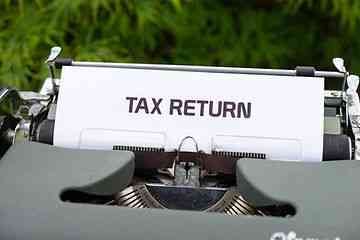Filing VAT returns

Once you have registered for VAT in the UAE, you are required to file your VAT return and make related VAT payments.
Calculating tax liability
A registered person’s tax liability is simply the difference between the output tax payable for a given tax period and the input tax which is recoverable for the same tax period.
Where the output tax exceeds the input tax amount, a payment of the difference must be made to the FTA.
Where the amount of input tax exceeds the amount of output tax, a taxable person is entitled to a refund of VAT from the FTA.
Filing tax returns
For each tax period, a taxable person will be required to submit a tax return which contains details regarding the supplies made or received by the taxable person
sales and other outputs
purchases and other inputs
Due date for submitting tax returns
The due date for submitting tax returns and making a payment of payable tax to the FTA is the 28th day following the end of the tax period
All tax returns should be submitted online using the FTA portal. The return can be submitted by the taxable person, or another person who has the right to do so on the taxable person’s behalf (for example, a tax agent or a legal representative).
Penalties related to return filing
Late return submission penalty (AED 1000, first time, then AED 2,000)
Late payment penalty (2% of the due tax on the first day after the deadline, then 4% after 7 days, then 1% after 30 days, daily up to 300%)
Correcting errors
Where a taxable person has made an error (for example, calculated output tax incorrectly or recovered the incorrect amount of input tax), then the person is required to correct this error.
Where the correction is required in respect of a tax return or a tax assessment, and the total value of the error is less than AED 10,000, the taxable person may correct the error on the tax return for the tax period in which the error was discovered. In all other cases, the taxable person must disclose the error to the FTA within 20 business days of becoming aware of the error, and request the FTA to correct the error.
By making a voluntary disclosure the taxable person may be eligible for a reduction in any applicable penalty. However, where a voluntary disclosure is submitted to the FTA after the taxable person has received notice of a tax audit or while a tax audit in in progress, the voluntary disclosure will either reduce penalties to some extent or not at all.
Tips
Seek an expert advice
Seek an expert advice, at least for the first 2 returns.
Employ tax accountant or outsource the VAT accounting function to a tax professional. If you want to file yourself or assign the job to non-specialist, they should spend ample time reading all VAT legislations and guides, and continually keep updated for ongoing changes.
Be aware of important dates
Tax period
Return filing deadlines
Tax year
Adopt a VAT policy
A good VAT policy with detailed procedures will serve as a preventive tool for errors. Each individual in the company should be aware of their part.
Be prepared to submit on time
Proper recordkeeping and daily posting of transactions will give you more time to review the return before submission. And you will avoid delays.
[sc name=”disclaimer”][/sc]

